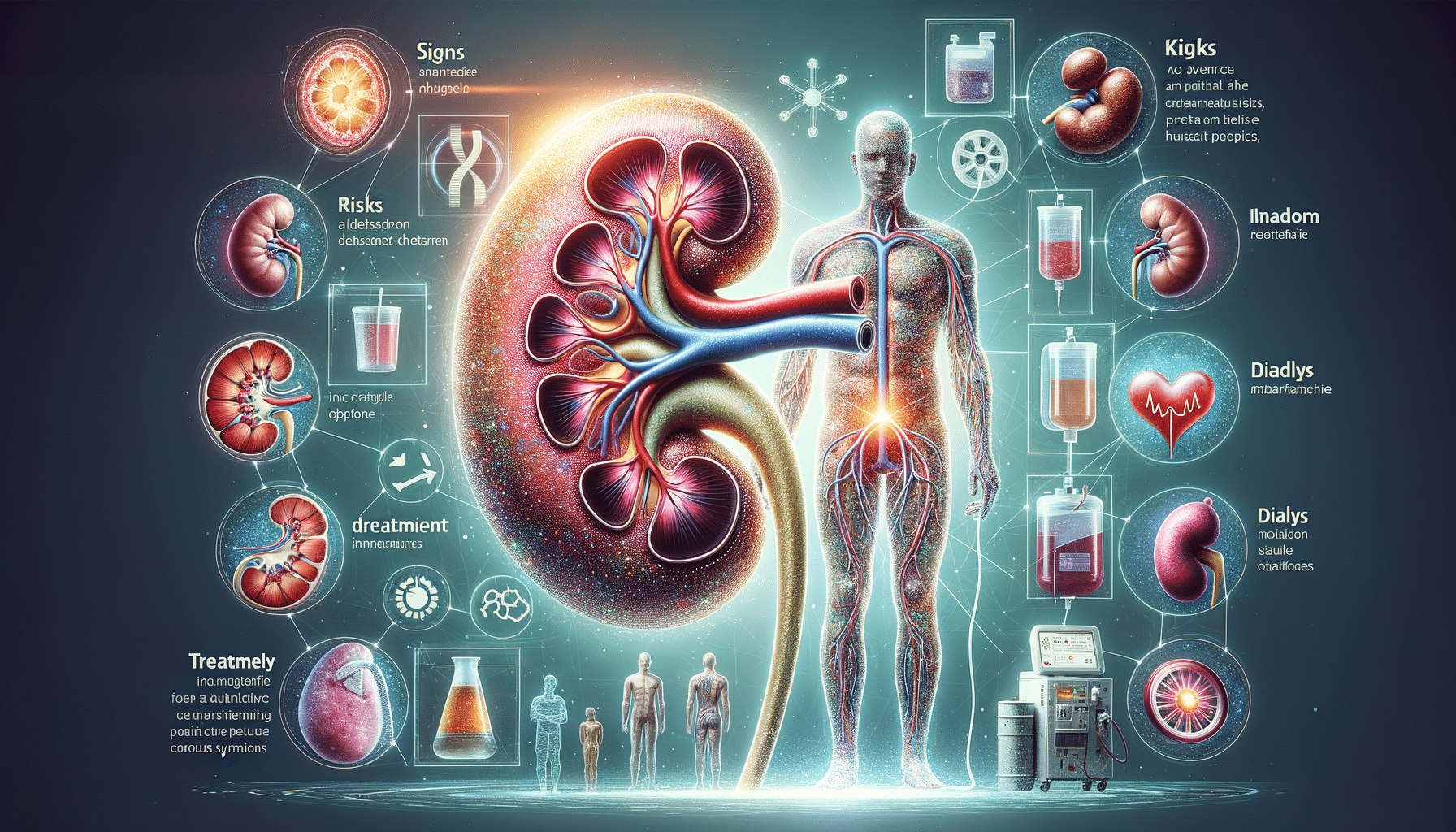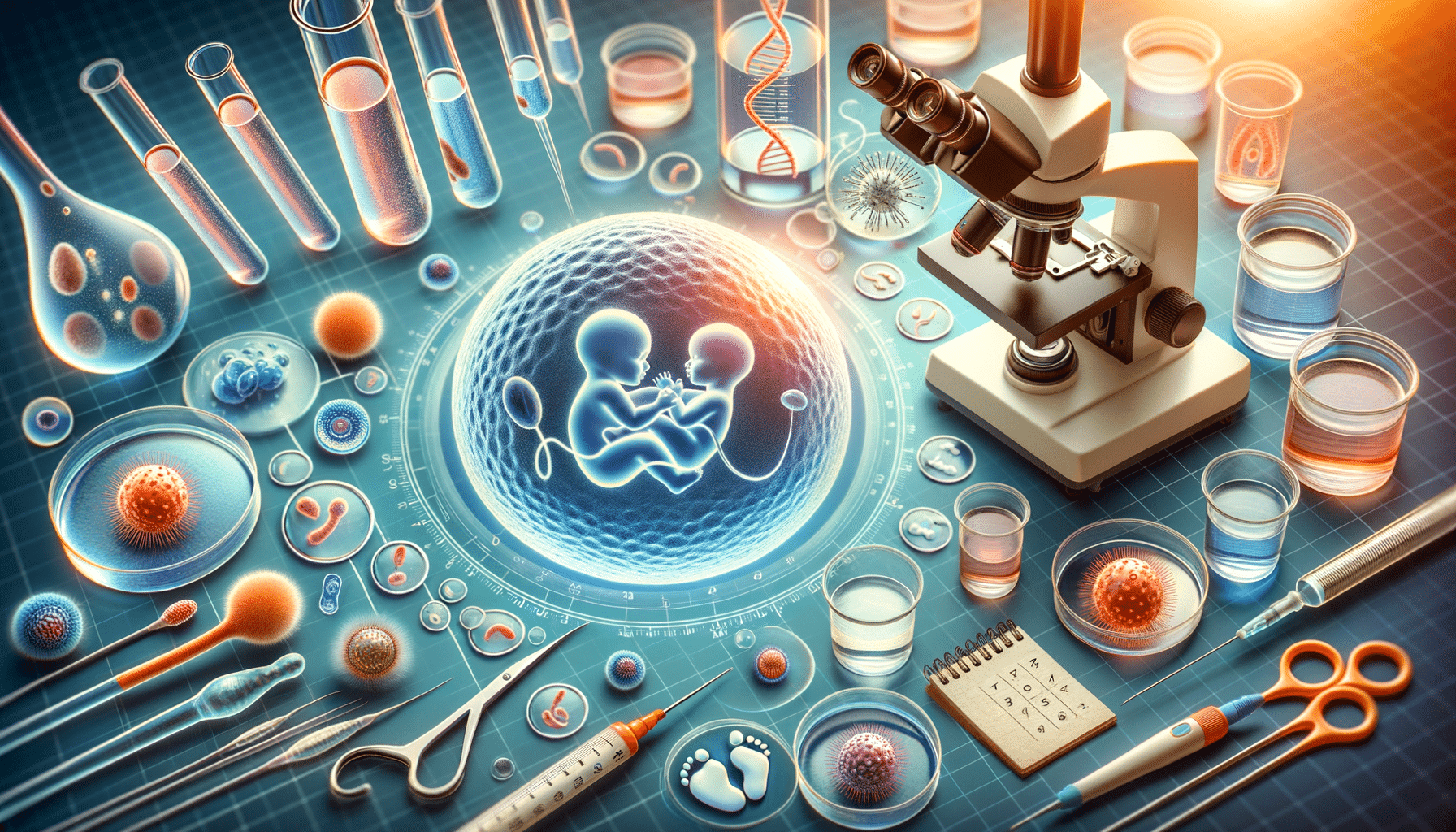
Understanding Kidney Failure: Signs, Risks, and Treatment Options
Introduction to Kidney Failure
Kidney failure, a critical health condition, affects millions worldwide. The kidneys, essential for filtering waste and excess fluids from the blood, play a pivotal role in maintaining overall health. When these organs fail, the implications can be severe, leading to an accumulation of waste and fluid imbalances in the body. Recognizing the signs and understanding the causes of kidney failure are crucial steps in managing the condition effectively. This article delves into the complexities of kidney failure, exploring its symptoms, causes, and the available treatment options.
Recognizing the Symptoms of Kidney Failure
Identifying the symptoms of kidney failure early can make a significant difference in outcomes. Symptoms often develop gradually and may initially be subtle. Common signs include:
- Swelling in the legs, ankles, and feet due to fluid retention
- Fatigue and weakness, as the body struggles to remove waste
- Changes in urination patterns, such as reduced frequency or dark-colored urine
- Nausea and vomiting, often resulting from toxin buildup
- Persistent itching, caused by waste products in the bloodstream
These symptoms can be overlooked or attributed to other conditions, making awareness and timely medical consultation essential. Regular health check-ups and monitoring kidney function through blood tests can help in early detection and management.
Understanding the Causes of Kidney Failure
Kidney failure can result from various underlying conditions, with chronic kidney disease (CKD) being a leading cause. CKD is often linked to diabetes and high blood pressure, which damage the blood vessels in the kidneys over time. Other causes include:
- Glomerulonephritis, an inflammation of the kidney’s filtering units
- Polycystic kidney disease, a genetic disorder characterized by cyst growth in the kidneys
- Acute kidney injury, often resulting from severe dehydration, infection, or medication side effects
- Autoimmune diseases, such as lupus, which can affect kidney function
Understanding these causes can aid in prevention and early intervention, reducing the risk of progression to kidney failure.
Exploring Treatment Options for Kidney Failure
Treatment for kidney failure aims to manage symptoms, slow disease progression, and improve quality of life. Options vary based on the severity of the condition and underlying causes. Common treatments include:
- Dialysis, which artificially removes waste from the blood when the kidneys can no longer perform this function
- Medications to control blood pressure, manage diabetes, and reduce inflammation
- Dietary changes, such as reducing salt and protein intake, to lessen kidney workload
- Kidney transplantation, offering a more permanent solution for some patients
Each treatment option comes with its own set of challenges and benefits, requiring a tailored approach to meet individual patient needs.
Living with Kidney Failure: Coping and Support
Living with kidney failure demands significant lifestyle adjustments. Patients often face physical, emotional, and financial challenges. Coping strategies include:
- Seeking support from healthcare professionals, family, and patient support groups
- Adhering to treatment plans and attending regular medical appointments
- Engaging in physical activity, as recommended by healthcare providers, to maintain overall health
- Educating oneself about the condition to make informed decisions
Support networks play a vital role in helping patients navigate the complexities of kidney failure, fostering resilience and improving quality of life.
Conclusion: Navigating the Journey of Kidney Failure
Kidney failure is a challenging condition that requires comprehensive management and support. By understanding its symptoms, causes, and treatment options, individuals can make informed decisions about their health. Early detection and proactive management can significantly enhance quality of life, offering hope and improved outcomes for those affected. As research continues to advance, new treatments and strategies promise to further support patients on their journey with kidney failure.


